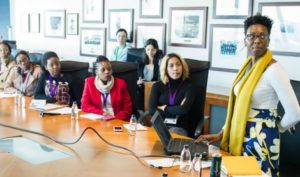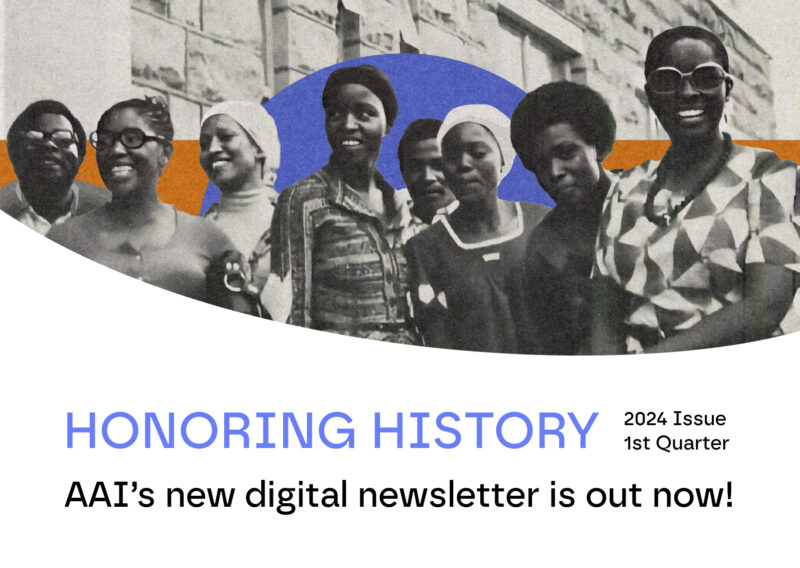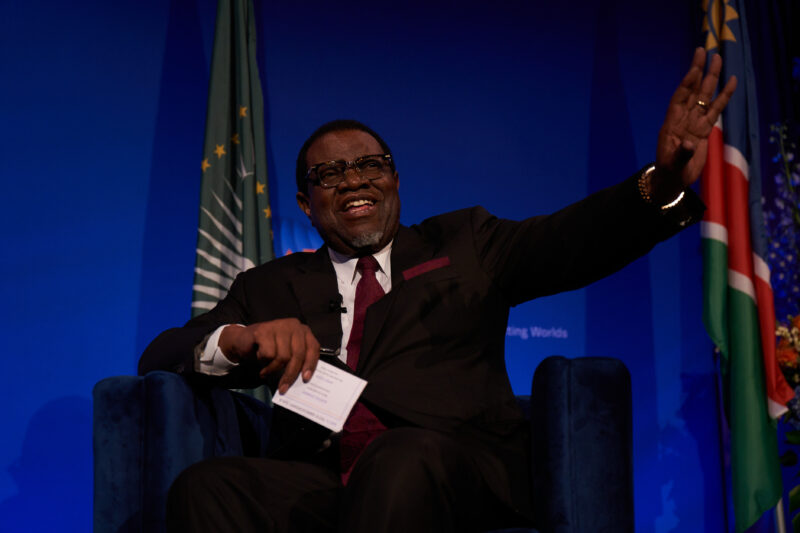AAI Workshop Focuses on Leadership Developent at Academic Activism Conference in South Africa
By Melissa Howell

Canon Collins Scholars’ Conference in Cape Town
For South Africans, 2016 marks the victories of two student-led social movements.
June 16th marks the 40th anniversary of the Soweto Uprising, an action that high school students took through protests to denounce the use of Afrikaans as the method of academic instruction.
Due to the high tuition fees at South African universities, students took to the streets once again to call for affordable tuition rates. And, as is evidenced by the student enrollment and universities in operation, the #FeesMustFall protests of 2015 prevented a 10-15% rise in education fees.
The Africa-America Institute was there to support student leaders in both occasions.
Although some, in the media and public, would render the protests as destructive and unruly, it is the leadership qualities of the few and the many that led to the global awareness of an education system who some claim is still structured to benefit and uphold privilege.
“We have been adaptive [leaders] for far too long,” exclaimed one participant. The scholars described changes that have since taken place at their universities at all levels. And, they took the conference opportunity to acknowledge a small victory in their ability to influence new innovations in the education system and the fact that fees were not raised. Still, they know more work is yet to be done.
The graduate and doctoral students sponsored by the Canon Collins Educational & Legal Assistance Trust called for an annual conference built on the backdrop of the #FeesMustFall movement.
Having participated in their conference in 2014, I was invited back to facilitate a leadership workshop that could give voice to not only the capacity already shown through the movement, but to further translate that to the broader context and communities within which many students post-graduation would be called on to support.
The AAI Leading for Change & Impact workshop was developed to respond to this training area gap previously only supported through our own conferences.
The workshop carried students through a discussion of ways in which leadership is exercised from anywhere in an organization and of leaders who embrace change as a function of their roles. For many, the concept of intending change offered a new perspective on leadership and the ability to see themselves as impact-makers not only influencers.
Gillian Atwood, South African Manager at Canon Collins, remarked that this “discussion of leadership [in] actual lived contexts, [was] real and relevant to the participants”.
The AAI specialized training and examination of the Kellogg Leadership Community Center’s Framework for Collective Leadership reinforced a space where students exercised their own collective leadership, acknowledging the emotional side of change and “support[ing] each other in unpacking and understanding concepts and their application”.
Though the doors of the university were closed due to the street protests, school wasn’t out. Perhaps unexpectedly, the #FeesMustFall movement operated more as a classroom without the borders and boundaries that limit young people from climbing the heights of a structured hierarchical system that formalizes leadership by title or tenure and less with the transformative difference it makes in the lives of others.
Melissa Howell manages and directs AAI’s Programs.
Photo Credit: Clare Louise Thomas of Image Incubator



